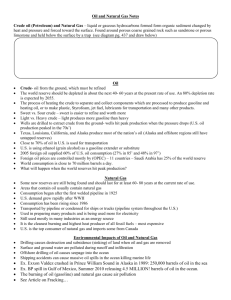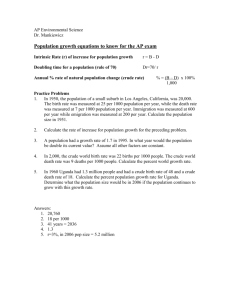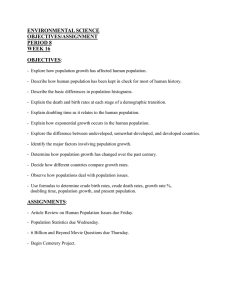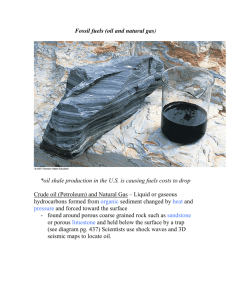fact sheet - Energy Transfer Partners
advertisement
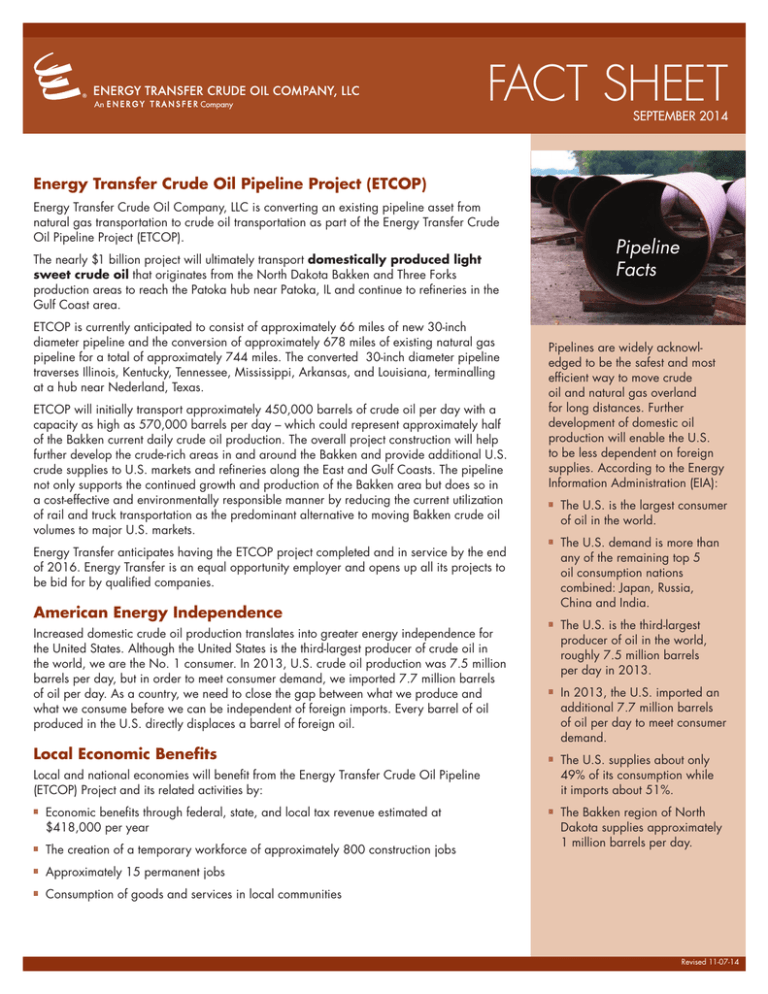
FACT SHEET SEPTEMBER 2014 Energy Transfer Crude Oil Pipeline Project (ETCOP) Energy Transfer Crude Oil Company, LLC is converting an existing pipeline asset from natural gas transportation to crude oil transportation as part of the Energy Transfer Crude Oil Pipeline Project (ETCOP). The nearly $1 billion project will ultimately transport domestically produced light sweet crude oil that originates from the North Dakota Bakken and Three Forks production areas to reach the Patoka hub near Patoka, IL and continue to refineries in the Gulf Coast area. ETCOP is currently anticipated to consist of approximately 66 miles of new 30-inch diameter pipeline and the conversion of approximately 678 miles of existing natural gas pipeline for a total of approximately 744 miles. The converted 30-inch diameter pipeline traverses Illinois, Kentucky, Tennessee, Mississippi, Arkansas, and Louisiana, terminalling at a hub near Nederland, Texas. ETCOP will initially transport approximately 450,000 barrels of crude oil per day with a capacity as high as 570,000 barrels per day – which could represent approximately half of the Bakken current daily crude oil production. The overall project construction will help further develop the crude-rich areas in and around the Bakken and provide additional U.S. crude supplies to U.S. markets and refineries along the East and Gulf Coasts. The pipeline not only supports the continued growth and production of the Bakken area but does so in a cost-effective and environmentally responsible manner by reducing the current utilization of rail and truck transportation as the predominant alternative to moving Bakken crude oil volumes to major U.S. markets. Energy Transfer anticipates having the ETCOP project completed and in service by the end of 2016. Energy Transfer is an equal opportunity employer and opens up all its projects to be bid for by qualified companies. American Energy Independence Increased domestic crude oil production translates into greater energy independence for the United States. Although the United States is the third-largest producer of crude oil in the world, we are the No. 1 consumer. In 2013, U.S. crude oil production was 7.5 million barrels per day, but in order to meet consumer demand, we imported 7.7 million barrels of oil per day. As a country, we need to close the gap between what we produce and what we consume before we can be independent of foreign imports. Every barrel of oil produced in the U.S. directly displaces a barrel of foreign oil. Local Economic Benefits Local and national economies will benefit from the Energy Transfer Crude Oil Pipeline (ETCOP) Project and its related activities by: conomic benefits through federal, state, and local tax revenue estimated at E $418,000 per year The creation of a temporary workforce of approximately 800 construction jobs Pipeline Facts Pipelines are widely acknowledged to be the safest and most efficient way to move crude oil and natural gas overland for long distances. Further development of domestic oil production will enable the U.S. to be less dependent on foreign supplies. According to the Energy Information Administration (EIA): T he U.S. is the largest consumer of oil in the world. T he U.S. demand is more than any of the remaining top 5 oil consumption nations combined: Japan, Russia, China and India. T he U.S. is the third-largest producer of oil in the world, roughly 7.5 million barrels per day in 2013. In 2013, the U.S. imported an additional 7.7 million barrels of oil per day to meet consumer demand. T he U.S. supplies about only 49% of its consumption while it imports about 51%. T he Bakken region of North Dakota supplies approximately 1 million barrels per day. Approximately 15 permanent jobs Consumption of goods and services in local communities Revised Revised11-07-14 9-23-14 Approximate Mileage by State: FACT SHEET I l l i no is 131.40 Ken t u c k y 51.22 T e nn essee 110.23 M ississippi 151.56 Our Commitment To Safety Community Partner We are committed to maintaining the highest levels of safety in all our operations, which means more than just meeting the required safety regulations – it means exceeding them. The ETCOP team is actively engaged in communication with landowners and government and nongovernment stakeholders regarding the proposed pipeline, including the route selection, environmental protection, and safety measures. Energy Transfer is dedicated to being a good neighbor and believes it is important to develop strong relationships with landowners, residents, community leaders, and other stakeholders in the areas where it conducts business. As pipelines are constructed, we inspect every weld that joins each section of pipe both visually and with x-rays. On-the-ground and aerial inspection, along with continuous remote data acquisition and controls, will be utilized to safely operate and monitor the environment traversed by the pipeline. Our pipelines are monitored by a control center in real time 24 hours per day, 365 days per year. We will obtain all necessary permits and continue to meet or exceed all safety requirements associated with this project. Energy Transfer Crude Oil Company Pipeline A r k a n sas 20.27 L o u isian a 236.43 T e x as 43.58 Revised 11-07-14
